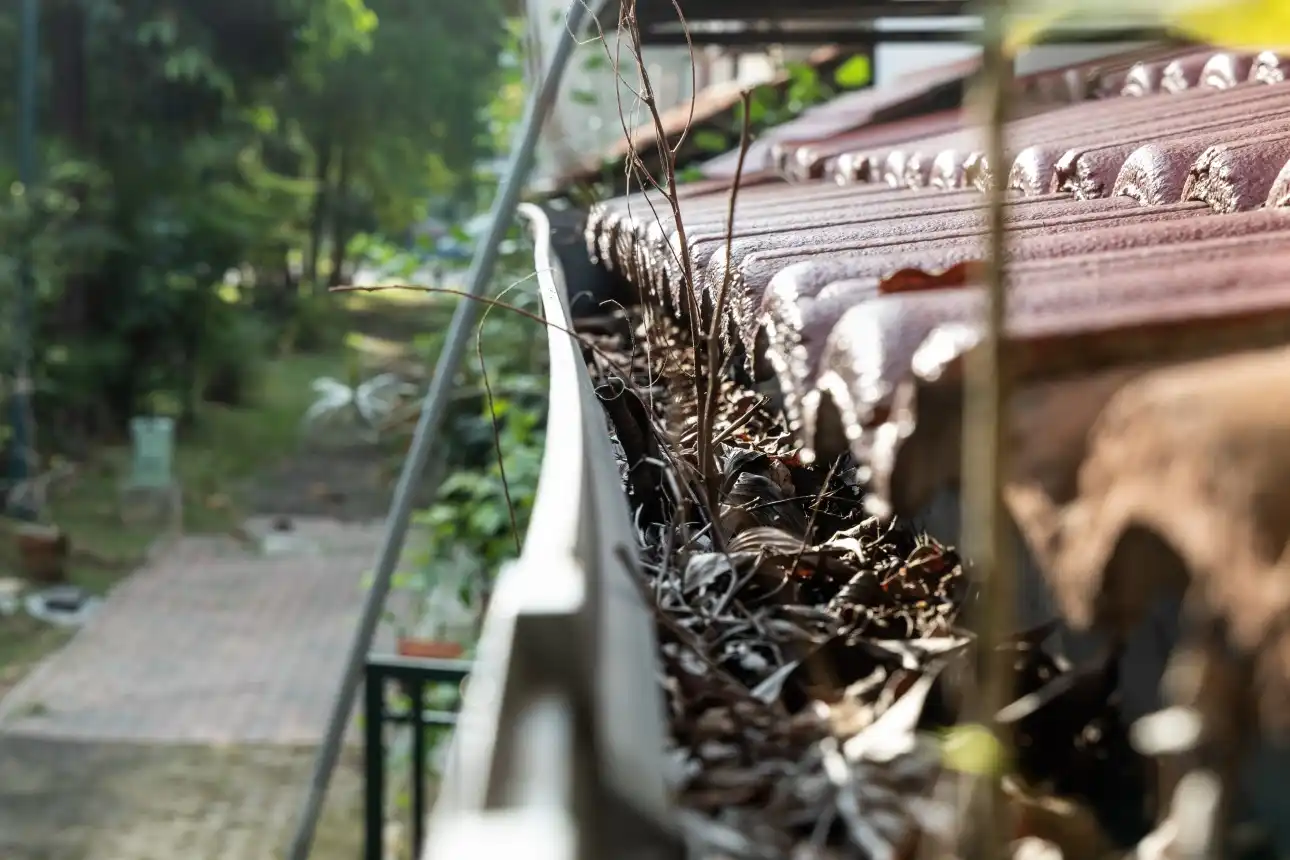Cold weather, snow, and ice are hard on homes and equipment. Things freeze up, break more easily, and are much harder to repair in the cold. Take care of these repairs and maintenance items before winter to save money and protect your investments.

Clean Out the Gutters
Gutters collect twigs, leaves, cones, and dirt which fill the trough and plug downpipes. Winter melt causes iced gutters, ice dams, overflowing water to pool around foundations, and gutters to fall off.
Make sure the gutters and downpipes are clear and flowing before winter. Consider installing gutter guards to keep debris out and protect your home.
Hoses and Taps
Disconnect, drain, and store garden hoses. Prevent outdoor faucets from freezing by closing the shutoff in the house, covering the tap, or installing frost-free taps. A frozen tap can cause pipes to burst inside the house and flood basements and crawl spaces, making a messy cleanup expensive and time-consuming.
Drain Irrigation Systems
Even if frost only penetrates the ground one foot, it freezes water in irrigation lines and bursts pipes. Blow all of the water out of the system before freeze up. Hire a reputable irrigation or lawn maintenance contractor if necessary. Replacing frozen underground pipes is expensive.
Clean Chimneys and Fireplaces
There is no way to prevent creosote buildup in fireplace and wood stove chimneys. Clean your chimneys thoroughly every fall to prevent chimney fires that damage chimneys and often result in house fires. It is worth hiring a chimney cleaning company if you do not have the equipment and expertise.
Even if you use creosote sweeping logs, you need to clean the chimney yearly. The logs do not remove the creosote. They make it easier to clean the chimney.
Check Roof and Walls For Leaks
Check your roof for shingle damage and your attic for leaks. If you are not sure what to look for or if getting on a roof is not an attractive option, hire a professional to do the inspection. Repairing damage caused by roof leaks is expensive and messy. Fix any roof damage immediately.
Clear insulation and debris from attic ventilation to reduce condensation in the attic while you are checking for leaks.
Repair all damaged or missing siding to prevent moisture penetration and pest infestations. Ensure all wall penetrations–like pipes and vents–are sealed. Remove old caulking from around window and door frames and replace it with exterior-grade product.
Seal Windows and Doors
Fix all drafty windows and doors with caulking, weatherstrip, and door sweeps to save energy costs, reduce drafts, and increase comfort. If caulking and weatherstripping are not enough, installing storm windows is worth the time and effort. They are an easy and inexpensive DIY project to provide a warmer home.
Clear and Protect the Deck
Decks collect snow and ice–even if they have a roof over them. Remove and store deck furniture. Deck cleaning before winter is essential to prevent deterioration. Get rid of all dirt and debris. Replace damaged boards. Reseal the deck.
Yard Equipment Preparation
Gas can gum up carburetors over winter while the machines sit idle. Drain the tanks and run them dry or add fuel stabilizer and run it through the system. Disconnect spark plugs. Store all garden and lawn equipment out of the weather for the winter. Cold weather discharges and kills batteries. Store them in a warm dry place.
Check Ventilation Systems
Remove and store window air conditioners. Disconnect power to the whole house air conditioner. Clean out AC compressors. You may want to wrap the compressor but it could provide a home for pests and create condensation. Cover the top to prevent blade damage from falling ice.
Inspect Your Furnace
Having your furnace inspected and repaired–if necessary–in warm weather is better than paying for emergency repairs when the temperature is below freezing. Get your gas lines, connections, and all gas-using equipment–like hot water tanks–inspected at the same time.
If you like our page please share with your friends & Facebook